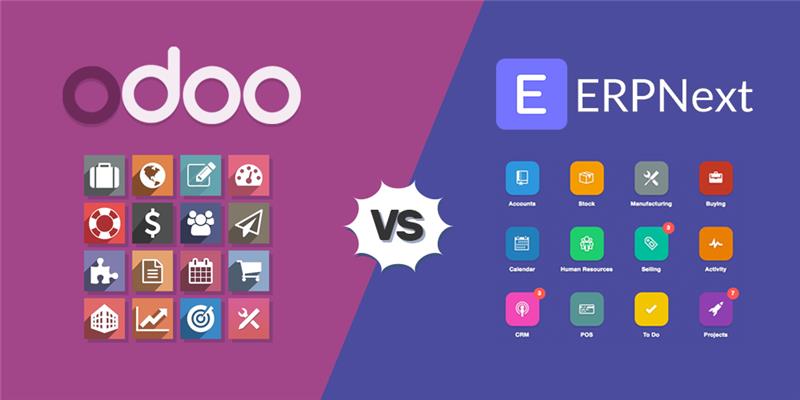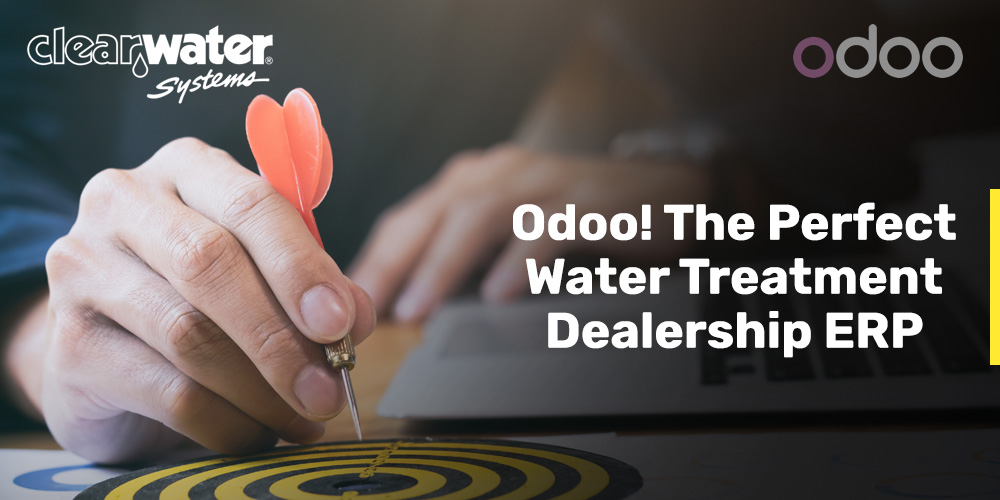Are you wondering why we emphasize so much on the integration and customization of Odoo ERP? Well, we will kill your curiosity in this blog through comparing it with ERPNext.
Advanced ERP systems have provided ease in managing online businesses effectively. From performing key business tasks such as sales, HR, finance, accounting, marketing, procurement, and e-commerce, the use of ERP systems makes business management transparent, quick, integrated, and productive. Let us see how Odoo performs these functions in comparison to ERPNext. Let us make sure that both Odoo and ERPNext have opensource features and are compared for the same reason.
Suitable Businesses: ERPNext specifically operates in project management, inventory management module, financial accounting, and human resources. On the other hand, Odoo works in all sorts of businesses and enterprises. In addition to managing inventory, HR, and finance, Odoo takes care of sales, procurement, marketing, manufacturing, customer relationship management, field service, website building, Point of Sale, e-commerce, and whatnot. You name a type of business, and Odoo will have a module for that.
Scalability: ERPNext only operates for small level businesses while Odoo’s scalability and flexibility differentiate it from other ERP systems. From a one-person small blog, i.e. smallest business, to catering to a business having 1000s of employees, Odoo operates at all levels. It is, in fact, the best for mid-level businesses that aim high but are currently at the medium level.
Network and Team: If you want simple requirements from an ERP solution having a small developer team, ERPNext suits that. If you want both simple and complex operations to be performed by your ERP, Odoo should be your choice since it is ideal for both small and medium enterprises and their relevant business management demands.
Integration of Modules: If you want to integrate CRM with accounting and finance, go for Odoo, since it undertakes both isolated and integrated module functions in a more sophisticated way. In fact, ERP integrations are one of the key traits of Odoo.
Customization and Expansion: If you want your business to expand globally and increase the scale of your business gradually, Odoo should be your first choice. It will cost you some money as customizing new modules will take some time and resources. On the other hand, if you have a small business and do not plan to expand or customize in the future, you can go for the old-school ERPNext.
Quick and Effective Communication: Odoo offers you to contact your clients and customers anywhere anytime from web-based communication and Mac access to android and iPhone access. ERPNext only provides web-based communication and Mac access.
Support Offers: Odoo provides quick support through phone, emails, live, tickets, and training while ERPNext is only available for support through phone and emails.
Thus, considering all given features, it is clear that Odoo is more comprehensive for businesses aiming to expand, integrate, and customize in a productive manner. Have any further questions or concerns about Odoo or its implementation?. Reach out to us for more details.








